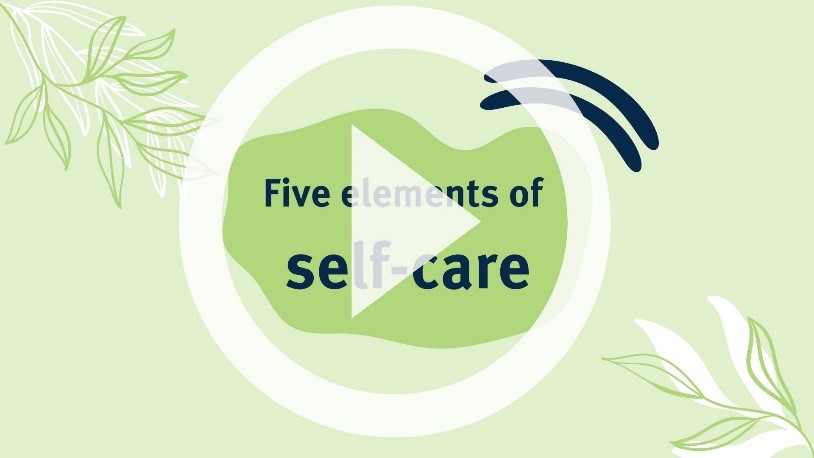Self-care for rehabilitation and return to work coordinators
Best practice
Look after yourself by understanding the risk factors and symptoms of vicarious trauma and sharing this knowledge at your workplace.
Why this is important
As a RRTWC, your work may expose you to workers who have experienced trauma or who share details of traumatic events. Vicarious trauma is a normal response to the ongoing exposure to other people’s trauma. If you experience empathy fatigue, this may increase your risk of experiencing vicarious trauma.
This can take its toll and impact on your life both in and outside of work. Feeling ‘weighed down’ or ‘burnt out’ are common symptoms of vicarious trauma.
There are strategies and resources to support you if you are at risk of, or experiencing symptoms of, vicarious trauma.
Watch this clip for five elements of self-care
Your toolkit
- Our bodies have a way of coping with vicarious trauma. Be on the lookout for the following symptoms of vicarious trauma:
- Intrusive reactions – may include dreams/nightmares, re-living, and flashbacks and obsessive thoughts.
- Avoidant reactions – an overall numbing of responsiveness, avoiding responsibility (e.g., blaming others), and avoiding people or places (for example, increasing sick days).
- Hyper-arousal reactions – difficulty concentrating, being hyper-alert (e.g. difficulty sleeping and retaining information, being distracted).
- Check if your employer offers an Employee Assistance Program (EAP), which can provide free and confidential services to support your wellbeing. This may include counselling, coaching and support to you and your family.
- Download Safe Work Australia’s Work related psychological health and safety national guidance material for information on how to meet your legal responsibilities to support your workers’ mental health.
- Good mental health and wellbeing allows us to live our lives in a meaningful and positive way and cope with life’s changes and challenges. Consider what self-care strategies work for you, and try to remember and implement these five elements of self-care:
- Physical – eating well, regular sleep and exercise
- Psychological – meditation, self-reflection, therapy or counselling
- Emotional – exploring a hobby, expressing emotions
- Spiritual – spending time in nature, volunteering
- Personal – setting boundaries, take breaks at work.
- If you work in the healthcare industry, watch this webinar on trauma informed care and vicarious trauma in healthcare.
- If you or your workers are suffering from a work-related psychological injury, you can access the Workers’ Psychological Support Service. The service provides Queensland workers with free, independent and non-technical advice to help minimise the impact of their injury by connecting them with existing community and social support services.
Call 1800 370 732 or email info@wpss.org.au.
- Take action to raise awareness of vicarious trauma and to promote a culture of psychological safety in your workplace. Check out our Mentally healthy workplaces toolkit and this workplace wellbeing fact sheet, and access our comprehensive list of resources to support mental health.
